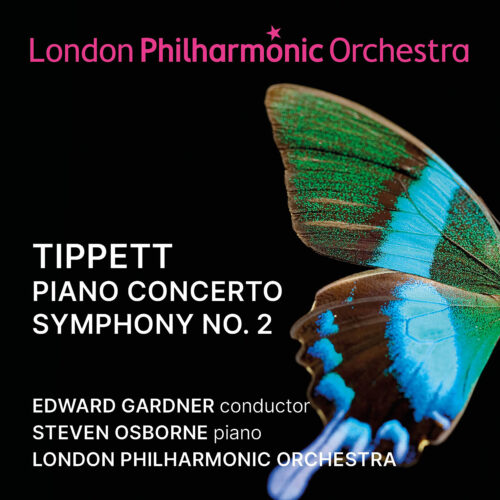Michael Tippett’s Piano Concerto is one of the great titles of its kind in the 20th-century. We don’t know enough about it, but this dazzling recording by the London Philharmonic Orchestra with the indefatigable Steven Osborne as soloist should convince you to hear it out more often. The piano score is absolutely crazy: it almost never stops! Julius Katchen, no stranger to virtuosic piano, described it as ‘unplayable’ before walking out on it just before its premiere in 1956. The soloist (here Osborne, spectacular and clearly up to the task) is called upon from the first to the last minute by the nervous, virtuoso writing. That said, the composer intended very few grand gestures. Instead, there is an incessant swarming of notes that often reveal themselves in scintillating cascades. Osborne succeeds in turning this into a fascinating, often abrupt promenade that never seems arduous or forced. Quite exceptional.
The orchestral writing is of the same ilk, giving the work as a whole a pointillist feel and a vibrant luminosity. The London Phil is superb, under the surgical direction of Edward Gardner.
Symphony No. 2 navigates the same expressive waters, but with an extra dose of dreaminess (bewitching Adagio molto e tranquillo) or sarcastic fairy tale (delicious last minute of the Presto veloce). The outer movements are energetic and finely drawn, like some Stravinskian apparitions in a larger-scale chamber music format.
Some consider this sympĥony to be a transitional work between two distinct periods of Tippett’s life: the early, lyrical period (with the Corelli Fantasia, for example) and the later, more austere period (represented by the opera King Priam). Personally, I find it reductive to describe it as such. This symphony is chronologically situated at the junction of two important parts of the composer’s artistic development, certainly, but it remains a whole piece of very fine coherence. The impressionist colourism and the beauty of the melodic lines are beautifully metamorphosed into angular passages that nevertheless retain all their narrative expressiveness.
A very warm recommendation.
























